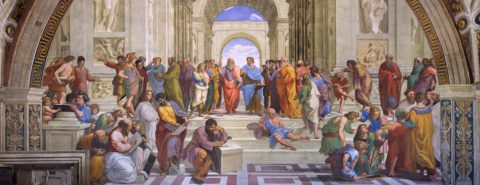 Ten American road trips In the spring of 1791, Thomas Jefferson and James Madison, accompanied by Jefferson’s enslaved chef James Hemings, took a road trip. In six weeks, they covered more than 900 miles, travelling through New York, Vermont, Massachusetts, and Connecticut before returning across Long Island. Suffering from various physical ailments and exhausted by the political travails of the day, they sought “health, recreation, and curiosity.” Madison said as long as they were together they could “never be out of their way.” Decades later, he recalled that the trip made them “immediate companions.” Few rites of passage are as venerated in American culture as the road trip, the journey of discovery to places unfamiliar or unknown. Here are ten noteworthy ones in literature and film in chronological order: 1. The Adventures of Huckleberry Finn (1884)Mark Twain knew about travel! In his famous novel, we follow Huck and Jim as they stream down the Mississippi in a biracial journey of discovery and escape. The trip gets a bit complicated in the novel’s third act, but, on the journey, they prove their manhood and confess their feelings for one another. Jim discovers he is free and Huck realizes the road is the only place for him. At the end, Huck continues his travels as he lights out for the Territory. 2. It Happened One Night (1934)In this classic screwball comedy, Clark Gable and Claudette Colbert find themselves together on a bus heading to New York from Florida. They hitchhike and encounter all kinds of difficulties as they fall in love, even though Colbert is married to a charlatan. Of course, they end up together. The film swept the key Academy Awards categories̶—and it did something else. In one scene, Clark Gable takes off his shirt to reveal he is wearing nothing beneath it. As a result, T-shirt sales in America plummeted. 3. The Grapes of Wrath (book 1939; film 1940)In John Steinbeck’s stirring novel, the Joad family, victims of the dust bowl and ruthless bankers, are forced to flee their Oklahoma home and head to California. They travel along the legendary Route 66, where they experience cruelty and kindness as they make their way to what they think will be the promised land. Unfortunately, it isn’t paradise, and at the end Tom Joad commits himself to forever travelling the country and serving as an agent of justice. “I’ll be everywhere,” he states. 4. On The Road (1957)Jack Kerouac’s novel is the one everyone thinks of when it comes to road trips. Much of the book focuses on the travels of Sal Paradise and Dean Moriarty. It is a tale of friendship and discovery, written in a stream of consciousness that matches the improvisational genius of jazz, which is a current that runs through the book. The novel has influenced generations of creative artists. Paradise says it best: “Nothing behind me, everything ahead of me, as is ever so on the road.” 5. Travels with Charley: In Search of America (1962)John Steinbeck makes this list twice. In 1960, aging and feeling that he had lost the feel for America, he embarked on a 10,000-mile journey across the nation, accompanied by his French poodle Charley. Part travelogue, part fiction, he wrote about the people he met. He gloried in the gifts of nature at Yellowstone and agonized over scenes of racial violence in New Orleans. In the end, he was uncertain what he found, and he lamented the loss of an older America. “The more I inspected this American image, the less sure I became of what it is.” 6. Easy Rider (1969)The film follows Captain America (Peter Fonda) and Billy (Dennis Hopper) as they travel by motorcycle from Los Angeles to New Orleans. The pair sold cocaine to finance their trip, and drugs, from marijuana to LSD, are part of their journey. In their travels, they experience life in a commune and befriend a lawyer (Jack Nicholson). But they face hostility (the lawyer is murdered) and, in the end, they are also killed. The movie defined an era where the rebellion of youth came to the forefront and the soundtrack forever linked rock ‘n’ roll to the journey on the road. 7. Zen and the Art of Motorcycle Maintenance (1974)Robert Pirsig’s book became a surprise bestseller, despite being rejected initially by dozens of publishers. It tells the fictionalized autobiographical story of a motorcycle trip he took with his son from Minnesota to California. Along the way, the narrative contemplates various philosophical and psychological issues. What the travelers found was inward, not outward. “Sometimes,” Pirsig writes, “it’s a little better to travel than arrive.” 8. Rain Man (1988)Awkward pairings are elemental in road narratives. Few are as different as the brothers Charlie and Ray, portrayed by Tom Cruise and Dustin Hoffman. One is an upscale collectibles dealer and the other is an institutionalized autistic savant. On their car journey from Cincinnati to Los Angeles, Charlie copes with the regimented habits of his brother and comes to appreciate and understand him. In Las Vegas, Ray uses his mathematical abilities to count cards and win big at blackjack. In the end, Ray returns to the institution where he lives, and Charlie promises to see him again, having come to appreciate his brother and realize he wants him in his life. 9. Thelma and Louise (1991)What starts as a girls’ weekend away becomes a one-way road trip to eternity. Geena Davis (Thelma) and Susan Sarandon (Louise), looking to escape from a domineering husband and deadening job, plan a weekend at a cabin. But after a stop at a roadhouse where Thelma is nearly raped and Louise kills her attacker, the women go on the lam. Along the way, their friendship and confidence grow, but they reach a point of no return as authorities bear down on them. They gas the engine and head toward a gorge. The film leaves the two of them in still frame, forever suspended in mid-air, pointed upward, out and away. 10. The Road (2006)In this famous post-apocalyptic work, Cormac McCarthy tells the story of a loving father and his young son journeying across a forbidding landscape. There is danger and horror everywhere and the pair struggle to survive. They strive to reach water, and do. But the father dies and the son is left to carry on with another family, who discover him. Father and son had “set out along the blacktop in the gunmetal light, shuffling through the ash, each the other’s world entire.” If each is the other’s world entire, it matters not where you are on the road. Feature image: Photo by Jaro Bielik on Unsplash. OUPblog - Academic insights for the thinking world. 
 How to speak truth (or a reasonable facsimile) to power One of the earliest depictions of the human form, painted on the wall of a cave in the Iberian Peninsula, seems to show a man with his middle finger extended. The gesture is probably not in this instance the near-universal sign of contempt it has become, but it may nevertheless serve as a reminder that the urge to make our feelings known has a long history. Today, that urge expresses itself most fully in our need to tell our leaders when we think they are wrong, a practice commonly known as “speaking truth to power.” But getting up the courage to do so is only half the battle. As our recent election cycle has shown, getting power to listen is a whole other matter. Leaders across the political spectrum tend to surround themselves with people who share their views, and the resulting echo chamber simply drowns out other voices. So how does one do it? The Bible has a couple of examples. In Genesis, the patriarch Abraham gets God to think twice before wiping out Sodom, the original Sin City. He does it by haggling. “Wilt thou also destroy the righteous with the wicked? Peradventure there be fifty righteous within the city,” he asks. When God agrees to spare the city if fifty righteous individuals can be found, Abraham cautiously but firmly starts bringing the number down. What about only 45, he asks. Or 30? How about 20? 10? Each time, God agrees to the new number, and we are left to believe not a single righteous person could be found in that moral cesspool. A more earthly example comes from the Second book of Samuel, where the prophet Nathan publicly shamed King David for wrongfully arranging the death of Uriah the Hittite so that he could take the voluptuous Bathsheba as his wife. Ostensibly seeking the king’s justice, Nathan shared a story about a rich landowner who nevertheless seized his neighbor’s only ewe for a feast. When David predictably exploded over this rampant injustice, Nathan sprang his trap, telling the king that this was what he had done when he lusted for Bathsheba. Even though Nathan had tricked and humiliated David, the king responded, “I have sinned against the Lord.” Abraham and Nathan were special cases. As patriarch and prophet, respectively, they had acquired the right to exercise what Greek and Roman scholars called parrhesia, literally, “frankness,” or “freedom of speech.” More ordinary folks had a problem, as the Greek philosopher Plato discovered when he travelled all the way from Athens to teach the ruler of Syracuse in Sicily how to become a philosopher-king. When Plato said that being a king or slave made no difference to a true philosopher, that ruler decided to try out the idea by selling Plato into slavery. (Legend has it that Plato used the money raised to pay his ransom to found the Academy.) Under the Romans, public speaking became a primary skill, especially when it came to getting a favorable response from the emperor. As a result, a fairly large number of speeches, and handbooks on how to deliver a successful one, survive. Here are some simple rules that can be distilled from these works. Rule one: know thyselfThis maxim, carved into the walls of the Temple of Apollo at Delphi, serves as a reminder that demeanor is important. As Plato learned, speakers who talk down to their listeners are likely to be dismissed as holier-than-thou prigs. So, it’s more effective to offer one’s advice, like Abraham, with a dose of modesty. Rule two: know thy audienceBetter even then know thyself is know thy audience. If a given leader has a history of saber-rattling and plans to start a new arms race, this is probably not the best time to propose a National Endowment for the Arts. In a democracy, We the People are the ultimate court of public opinion, and in this instance, emotion is often more effective than reason. Greed was all it took to get the ancient Athenians to launch their disastrous expedition against Syracuse, while Mark Antony, in his Funeral Oration for Julius Caesar, used anger to “let slip the dogs of war.” Fear works, too. Just ask the hordes of murderers, rapists, and pedophiles waiting to unleash Armageddon on our borders. Catchy, imperative phrases can be highly effective if they encapsulate a strong emotion. “Build the wall!” and “drain the swamp!” are good examples. “Build Back Better,” not so much. Rule three: make it win-winTerrible things happened to David after he was rebuked by Nathan, but in a strictly political sense his willingness to accept the charge (rather than, say, putting Nathan on an enemies list) established David as a legitimate ruler, and not a tyrant. Similarly, that saber-rattling ruler who would never hear of an endowment for the arts might actually listen to someone who pointed out that the pen can be mightier than the sword. Rule four: flattery is good, finesse is betterIn the fourth century, Bishop Eusebius of Caesarea, author of an influential life of Constantine the Great, was present when a speaker dubbed the first Christian emperor a saint and told him he would surely continue to rule in the afterlife. Constantine, who cultivated a public image of prayer and humility, exploded, and that speaker was never heard from again. A speech of Eusebius’s own survives, and a modern reader might be forgiven for thinking the bishop was being just as flattering, but in fact he chose his words much more carefully. Taking note of Constantine’s well-known penchant for public applause, for instance, Eusebius claims, “The cheers of the crowds and the voices of flatterers he holds more a nuisance than a pleasure, because of his stern character and the upright rearing of his soul.” Eusebius shows he had mastered the trick that the conspirator Decius centuries later would explain in Shakespeare’s “Julius Caesar” as the ability to deliver such praise while seeming not to: “But when I tell him he hates flatterers, / He says he does, being most flatterèd.” Do such rules matter in our postmodern age, when truth itself seems to be up for grabs? We are not as unique as we like to think. Two millennia ago, Pontius Pilate asked, “What is truth?” If a skilled speaker had been on hand, the subsequent course of history might have been very different indeed. Featured image: ‘The School of Athens’ by Raffaello Sanzio, c.1509-1511, via Wikimedia Commons. OUPblog - Academic insights for the thinking world. 
 Pride isn’t arrogance; it’s love Shae Washington, a Black queer Christian woman, struggled to reconcile her sexuality and her spirituality. Her church had always taught that you cannot be both Christian and queer. After years of praying about her struggle, one day she heard God say, “I have already set you free on the cross. Why are you still in the closet? Come out, be who I created you to be.” That day, when Shae chose to trust God’s authority over her own certainty, she said she felt a tremendous peace from God. That peace kept her grounded as former friends now demanded she show them where in the Bible it said this was okay and as church members charged her with arrogance for elevating her own experience over years of tradition. Shae was among those living on the frontlines of the so-called culture wars—conservative Christians who are also LGBTQ+. Some of the things that make a lot of their lives hell make a lot of other people’s lives hell, too, in less direct ways. We all gain by understanding their situations. As we think about pride this month, the lives of LGBTQ+ conservative Christians can help us to see the link between pride and humility, and how both are necessary for love and justice. Knowing that you are a human being, worthy of love, is the kind of pride that a lot of straight, cisgender people take for granted. It is often denied to LGBTQ+ people. That is the pride we celebrate during Pride Month. As Shae’s story illustrates, many LGBTQ+ Christians find it is their humility that helps them recover or develop a healthy sense of pride: the belief in their fundamental worthiness of love and belonging. Many LGBTQ+ conservative Christians have had loved ones cut them off from all connection out of fear that they are not just sinful, but dangerous to those they love. They are accused of “turning their backs on God,” even though many have begged and pleaded with God to take away the feelings that they thought made them unworthy of love. Still, many LGBTQ+ Christians stay connected to their faith communities, and more and more are being honest about who they are and engaging with their churches. LGBTQ+ Christians who are also people of color may need church as the one place where they find the support they need to survive living in a racist world from week to week. But unlike straight, cisgender people who may have church support groups to help with their marriages or families, LGBTQ+ people may not feel welcome to talk about their intimate relationships or find support for how to navigate them. And in predominantly white LGBTQ+ spaces, they may be free to express their sexual and gender identities, but might endure racism. Their stories make clear that it’s hard to flourish when you have to hide parts of yourself, and that we thrive when we are unconditionally loved and accepted as whole people. But getting there can be a tough road. Looking at life from LGBTQ+ conservative Christians’ perspective, we see how actions that look like love might not actually be loving. In our research, we heard about a dynamic we call sacramental shame, where churches required LGBTQ+ members continually to feel and display shame—an emotion that signals they know they are unworthy of love—as a sign that they have not rejected God. This requirement was often shrouded in the language of love, “we love you, but we hate your sin,” and in expressions of affection and care. Being gay, bi, or trans was compared to being a murderer, or cheating on a spouse, or embezzling funds—all things that violate other people’s trust and break relationships. Yet the same people who taught that God could forgive people for these things also taught that being LGBTQ+—which is generally involuntary and doesn’t actually hurt anyone—makes a person uniquely unworthy of God’s love. When you treat being LGBTQ+ itself as a sin—the worst sin—you treat your own understanding of gender and sexuality as greater than God’s love, as a commandment more important than the Ten Commandments (which, Jesus said, all boil down to loving God and neighbor). There is a particular harm that is caused by treating someone like their capacity to love is dangerous. It can make people feel like monsters. We heard from people for whom life had become completely unlivable because they felt unworthy of human connection and God’s love. They kept friends at arm’s length out of fear that getting too close would condemn them both to hell. When someone has been treated this way, and comes out of it recognizing that they are not monsters but human beings, they feel alive again. That is pride: knowing that they are worthy of love and belonging, with their gifts and flaws, simply because they are human. In contrast to arrogance or hubris, we call this “relational pride.” Relational pride is taken for granted by many cisgender and heterosexual Christians, because no one ever questions that they deserve love. Knowing they are worthy of love only seems like arrogance to those who think LGBTQ+ people are uniquely unworthy. And yet they accuse LGBTQ+ people of being the arrogant ones. Relational pride is not the opposite of humility, but its counterpart. Humility is a realistic knowledge of your gifts as well as your limitations. Humility enables us to admit that we might be wrong even when we feel pretty certain; it keeps us honest about our humanity, that none of us is all-knowing and that we need to learn from each other. Shae’s humility allowed her to be open to the possibility that she might be wrong about what she had always thought about gender and sexuality. It allowed her to trust God’s message that she is worthy of love, just as she is. What looked like arrogance to fellow church members was an act of submission to God, taking the harder path of being who God was telling her she was made to be. Shea’s humility led her to a healthy sense of pride—the joy of knowing she is worthy to give and receive love. Humility also helps those who have devalued LGBTQ+ Christians to reconsider. Conservative Christian parents, pastors, and friends tell stories of the moment they realized that maybe they didn’t know everything about human sexuality and gender. That maybe they didn’t fully understand what the Bible was really saying. They showed humility, which led them to prioritize love over certainty. Conservative Christians often say their job is to love others, not try to bring about social justice. But there is no love without justice. When we love other people, we are humbly open to learning from them and growing through our connection. We listen to them when they tell us we’ve been hurting them, and because we love them, we work to stop hurting them. Love also means listening when people tell you that your organization’s—or country’s—policies are hurting them, because of their sexual orientation, or gender, or race, ability, or because the policies themselves deprive them of things they need to live. Helping them to thrive might mean working to change those policies—out of love. We on the left can also be arrogant, dismissing those we disagree with as backwards or even evil. To be sure, there are some pretty evil things happening in the world right now. It can be harmful to try to empathize with someone who treats you as if you shouldn’t exist. But trying to understand the fears behind their actions—when we can do so without personal harm—can help us all to find a way forward, to a society in which people are all treated as worthy of love and care not just from their friends and family, but by institutions and policies. Humility and pride foster solidarity—a relationship of love that works for justice. Featured image by Jason Leung via Unsplash. OUPblog - Academic insights for the thinking world. 
 The young Athenians: America in the age of Trump “You’re not in a good position. You don’t have the cards right now. With us, you start having cards,” snapped President Trump at Volodymyr Zelenskyy, the president of Ukraine, in a so-called negotiation at the Oval Office, broadcast globally on Friday, February 28, 2025. Vice-President JD Vance went on to demand that Zelenskyy say thank you and “offer some words of appreciation for the United States of America and [Trump] who is trying to save … [Ukraine].” Before the dialogue ended with President Trump asserting “This is going to be great television,” he turned to Zelenskyy and summed it all up: “…You are either going to make a deal or we’re out. And if we’re out, you’ll fight it out… But you don’t have the cards…Once we sign that deal [a ceasefire without any guarantees], you’re in a much better position, but you are not acting at all thankful. And that’s not a nice thing. I’ll be honest. That’s not a nice thing.” Behind all these assertions by the U.S. president and vice president that Ukraine must follow directives—indeed, that Ukraine has no choice but to comply with whatever the U.S. dictates—lies the belief that might makes right. The ancient Athenians made similar arguments in a remarkably analogous dialogue recorded in Thucydides’ History of the Peloponnesian War, specifically during the conflict between Athens, a state at the height of its power, and the small, weak island of Melos. In 416 BCE, during a truce between Sparta, Athens, the two states embroiled in the Peloponnesian War (431–405 BCE), Athens, without any clear motive or moral justification, sent a large army to Melos, a neutral state during the war, demanding that Melos join the Athenian alliance. “Right,” they claimed, “is only in question between equals in power, while the strong do what they can and the weak suffer what they must” (Thuc. 5.89). The Melians were fully aware that by deciding whether to join the Athenians, they were facing a choice between war (against Athens), should they choose to maintain their neutrality, and slavery (to Athens), if they did not. They contended that they ought to be permitted to remain neutral, but Athens responded to each of their arguments with refusal and points that highlighted their superior power. At the conclusion of this disheartening dialogue, the Athenians told the Melians: “Your strongest arguments depend upon hope and the future, and your actual resources are too scanty, as compared with those arrayed against you, for you to come out victorious. You will therefore show great blindness of judgment, unless, after allowing us to retire, you can find some counsel more prudent than this … And it is certain that those who do not yield to their equals, who keep terms with their superiors, and are moderate towards their inferiors, on the whole succeed best. Think over the matter, therefore, after our withdrawal, and reflect once and again that it is for your country that you are consulting, that you have not more than one, and that upon this one deliberation depends its prosperity or ruin.” (Thuc. 5.111)
With us, they said, you will have cards. But you are not acting at all thankful to us, who can guarantee your security. This notion that might is right is foundational for the realist school of International Relations, which argues that power, often enforced through violence or war, structures the relationships among sovereign nations. However, the apparent rationality of Trump and Vance’s arguments, as well as those of the ancient Athenians, is misleading. Thucydides’ presentation of the Athenians in this dialogue is not positive. At the end of it, the Athenians besieged the Melians, who surrendered a few months later and faced the harsh penalty of having all the male citizens executed and all the women and children sold to slavery. These were reprehensible acts to Thucydides, most of the ancient Greeks, and probably many of the Athenians. A few months later, the Athenians made an arrogant and disastrous decision to invade the island of Sicily, where they suffered an utter defeat that marked the beginning of their loss to the Spartans in the Peloponnesian War. Thucydides, who was writing his history after Athens had been defeated in Sicily, offers the Melian dialogue as an example of how states should not behave toward one another. The events on Melos mark a turning point in Athens’ history, when its excessive use of force and abuse of power eventually came back to bite and destroy the Athenians. In 411 BCE, after the disaster on Sicily, Athens briefly abolished its democracy and instituted an oligarchy, followed just 7 years later by another oligarchic regime that ruled violently, disenfranchised most Athenian citizens, and killed foreigners and citizens alike to get rid of enemies. It took a civil war in Athens to restore democracy and return to a healthy civic community. Athens’ behavior toward the Melians and the belief that power equates to justice led the Athenians directly into a civil war. As a professional historian, I do not think that history repeats itself. Instead, I believe not knowing history is like driving without rear-view mirrors. The televised negotiations in the Oval Office should make us all cautious about the future for the U.S. and the world. As we rush headlong into the future, we should slow down and consider whether there are alternative ways to structure international relations based not on fear and strength, but on positive values like community and peace. We must reflect on whether our states’ actions, or even our own, align with a good moral code and whether war is genuinely inevitable. Featured image by Constantinos Kollias via Unsplash. OUPblog - Academic insights for the thinking world. 
 The Naval Academy Class of 1940 [slideshow] As shocking as the Pearl Harbor attack had been for the Naval Academy Class of 1940, the sudden arrival of peace was nearly as disorienting. Most of the Forties, as they were known, were still only 27 years old, and the great adventure of their lives was now behind them. The war had dominated virtually all of their adult lives, from Hitler’s reoccupation of the Rhineland in 1936 to Japan’s surrender in 1945. For nine years, they had been directed by circumstance, authority, and a shared feeling of responsibility. They had served in different theaters, in different jobs, on different ships—or planes, or battalions. Yet all of them had been forged, tempered, and tested. Every man in the class knew someone who had been killed in the war, and the sacrifice of their classmates was etched into their hearts. They had learned to live in the moment; now they had to think of the future. For the next two decades and longer, they served in a wide variety of assignments throughout the world. For some of them, there was another war, in Korea. For a few, there was even a third war, in Vietnam. Throughout it all, they stayed in touch with one another, attended class reunions when they could, and caught the occasional Navy football game. Eventually, they retired. Some took up a new profession; several became teachers. But none of them ever forgot their trial by fire in the Second World War, nor did they forget one another. They were always Forties. [ See image gallery at blog.oup.com] Feature image credit: Graduation day at Annapolis, Class of 1940. Library of Congress, Prints & Photographs Division, photograph by Harris & Ewing, [reproduction number, e.g., LC-USZ62-12345]. Public domain. OUPblog - Academic insights for the thinking world. 
|
|